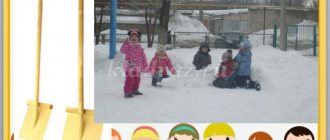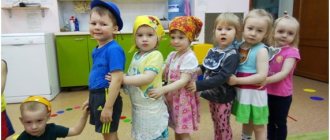Valery Ronshin “Tales about astronauts”
Fairy tale
about perpendicular Earth
and cosmonaut Savushkin
Once upon a time there was an astronaut named Savushkin who never flew into space. You may ask: how is it possible that you are an astronaut and have never flown into space? Yes, very simple. Football players, for example, have reserve players, and astronauts have backup players. A backup is a spare astronaut who flies into space if something happens to the main astronaut at the last minute before launch. Well, his wife will call him on his cell phone and say that she accidentally broke his favorite cup. The astronaut’s mood, of course, will immediately deteriorate. How can you fly into space with a bad mood? No way. So he doesn’t fly, but a backup flies instead. Our Savushkin was such an understudy.
A year passes, two passes, three, four, five... And Savushkin is still an understudy and an understudy. Others do nothing but fly into space. But Savushkin is not. At the cosmodrome he would wave to the next astronaut and go home without a sip. And he is not happy at home. Because his wife is not sugar. And she saw... Savushkin kept nagging and nagging, nagging and nagging: “When will you finally fly into space?..” In addition, Savushkin has children - all of them, as one, are poor students.
In short, Savushkin was unlucky with either space, his wife, or his children.
And one day Savushkin was sitting at the window in the evening, saddened, looking at the starry sky.
“Really,” he thinks, “will I never fly into space?”
And then suddenly the phone rang - ding, ding.
“I’m listening,” says Savushkin.
— Is this cosmonaut Savushkin? - the invisible interlocutor asks.
“Double Savushkin,” Savushkin corrects him with a heavy sigh.
— Do you want to become a real astronaut? - asks his invisible interlocutor. — Do you want to fly into space?
“Of course I want to,” Savushkin answers with an even heavier sigh. - Who will let me in there?
“I’ll launch it,” answers the invisible interlocutor.
- And who are you? - Savushkin asks him.
“It doesn’t matter,” the interlocutor answers.
- But how...
- Same here. And in general, there’s something I don’t understand: do you want to fly into space or do you want to know who I am?
- Into the space! - blurted out the understudy Savushkin.
- Well, then, fly. A car will pick you up and take you to our secret cosmodrome, from which you will launch on a secret rocket into space.
- And when? - Savushkin asks with bated breath, afraid to believe his happiness.
- Right now.
And then again - ding-ding! - call. But this time it’s not a telephone call, but a doorbell. And on the threshold - some man.
— Are you cosmonaut Savushkin?
- I.
- Get ready for space.
Well, why should Savushkin get ready? He's a double. He's always ready! I put on my spacesuit, got into the car... We rushed off.
-Where are we going? — Savushkin asks the driver.
- To the secret cosmodrome.
That's all. Say no more.
They rushed to the secret cosmodrome, and there the secret rocket was already standing, ready to launch. Savushkin climbed into it and sat in the pilot’s seat. “Let's go,” he says.
And the secret rocket immediately soared into the night sky, and then into space.
And so the backup Savushkin flies, that is, now cosmonaut Savushkin, and his soul sings with happiness - la-la-la... la-la-la... Why shouldn’t she sing if she was eager to go into space for so many years, and here it is on you - space!
But no joy, even the greatest, lasts too long. Savushkin rejoiced along with his soul for an hour and a half, and then he thought: “Why did they launch me from a secret cosmodrome on a secret rocket into space?” As soon as he thought about it, ding-ding! — the transmitter started working.
— Cosmonaut Savushkin?!
- I! - Savushkin answers.
— How is the flight going?
— The flight is going well!
— Why “okay” and not “excellent”?
- Yes, I’m thinking here...
- We know what you are thinking. Why were you launched into space from a secret cosmodrome on a secret rocket? Right?
- Yes sir!
- Don’t think so, you’d better look out the window.
Savushkin looked out the porthole and gasped.
And there was something to gasp from, because Savushkin did not see either the Moon or the Earth behind the porthole... What about the Earth and the Moon, he didn’t even see the Sun. And the endless cosmic emptiness spreads out before his eyes. Without a single star.
“That’s the number for me to die,” says the dumbfounded and dumbfounded Savushkin. - Where have all the planets gone from space?
“They haven’t gone anywhere,” a voice from the transmitter answers him. - They were never there.
- How did this not happen?! And the Earth with the Moon, and the Sun, and the stars... - Savushkin listed.
“So this is in ordinary space - the Earth with the Moon and the Sun with the stars,” explains the voice, “but we launched you into perpendicular space.”
“Which one, which one?” Savushkin asked.
- Perpendicular. In which there is nothing.
- Why didn’t you tell me about this right away? - Savushkin doesn’t understand.
- Then you wouldn’t have flown.
- Why didn’t you fly? - Savushkin again doesn’t understand.
- Yes, because there is no way back from perpendicular space. We were only able to send a rocket there with you, but we don’t yet know how to return it back.
It was then that Savushkin realized what kind of trick they had set up for him.
- Shame on you! - he says in his hearts.
“We’re still ashamed,” answers the voice from the transmitter. “But science requires sacrifices.” Someone has to be a pioneer.
- Well, the trees are green! - Savushkin is indignant.
“Don’t be so upset,” the voice from the transmitter consoles him. “There’s enough air for you to last your entire life, and enough food too... But here on Earth, we’ll erect a monument to you as a pioneering hero.”
“They could have at least let the dog in first,” Savushkin continues to be indignant, “why do we need a human right away?!”
“The Animal Welfare Society forbade us from launching dogs into perpendicular space,” explains the voice. “So please forgive me sincerely and farewell forever.” Now the connection will be lost.
And exactly. The connection was lost.
And cosmonaut Savushkin was left alone with perpendicular space...
- What should I do now in this perpendicular space? - He scratches the back of his head.
And he really has nothing to do. Just fly. Here Savushkin is flying. It flies and flies... It flies and flies... It flies and flies... Suddenly it sees the Earth. At first he didn’t even believe his eyes. Then I looked closer: it was definitely Earth. Over there is Africa, over there is Antarctica... Well, Savushkin went to land. I've arrived. Got out of the ship. And in front of him is the real Russia: fields... forests... rivers... tram No. 15, on which Savushkin usually returned home from the cosmodrome when he was an understudy. Savushkin got on this tram and went home. Had arrived. The entrance, the floor, the door... Everything is also his - familiar and dear. He opened the door... And then...
And then Savushkin realized that he was not on ordinary Earth, but on perpendicular one. Because where does an ordinary Earth come from in perpendicular space?.. But the point is not even in space, but in Savushkin’s wife. His wife turned out to be completely different here. Not like on ordinary Earth, but gentle and kind. And the children are also completely different - excellent students and smart.
What about children and his wife, if Savushkin himself is different here - not some kind of understudy, but a colonel general and an honored pilot-cosmonaut.
That's it! As they say: what you don't expect is what you get.
INFORMATION ABOUT THE CULTURE OF LIFE
Creativity of the site author
The first chapter of the online book OGNESVETOPISK
ARTISTS OF THE WORLD
The third chapter of the online book OGNESVETOPYT
Site news
Human life. Lifestyle and health. Personal life and children. Useful Knowledge for life. The importance of creativity for life. Choosing a life path.
Living Ethics about the Solar Plexus. Centers (chakras) of a person. Agni Yoga. The influence of Cosmic energies on health. Danger of “fire” of centers. Mental Yoga.
CALL. Sheets of the Garden of Moria. Living Ethics. Read. Excerpts on various topics. New Agniscience. The Beauty of the Feat. Lord. Hierarchy of Light.
D.S. Likhachev. "The biggest". Letters about the good and the beautiful. Schoolchildren and students on how to increase goodness. What is the purpose of life? For teachers about the Culture of life and education.
Contemporary painting by Samara cosmist artist. A parable about the meaning and wisdom of life for the Common Good. Spiritual knowledge. About Feat and Heroism.
The fiery life of St. George the Victorious. Brief biography (life) for children and schoolchildren. Quotes about the Feat. Verses (poems) about Victory. Material for Victory Day on May 9. St. George's ribbon as a symbol of bravery and courage.
How to develop a reading culture in children? The role of books in human life. All-Russian Librarian Day 2022.
Yakov Perelman "Entertaining Astronomy"
The book by the Russian scientist Yakov Perelman introduces readers to various issues of astronomy and scientific discoveries. The author unfolds before the reader a picture of the world space and the phenomena occurring in it. Most of the book is structured in the form of questions and answers (Why doesn’t the Moon fall on the Sun? Are stars visible during the day? When are we closer to the Sun: at noon or in the evening? etc.).
For children from 12 to 18 years old and for anyone interested in astronomy, including teachers.
Excerpt from a book:
“The reader will probably ask the question: if the telescope does not magnify the stars, then why is it used to observe them? A telescope is powerless to increase the apparent size of stars, but it increases their brightness, and therefore multiplies the number of stars accessible to vision (...). The telescope reveals to us double, triple and even more complex stars where the naked eye sees a single star. Star clusters, which for the naked eye merge beyond the distance into a hazy speck, and in most cases are completely invisible, scatter in the telescope field into many thousands of individual stars.”
Efrem Levitan "Fairytale Universe"
For primary school age
This colorful book is intended for inquisitive children who are interested in astronomy and cosmonautics. The famous Russian teacher and author of a large number of books about space for children, Efrem Pavlovich Levitan, answers the most popular and difficult questions. The main characters of the “Fairytale Universe” - the children of Alka and Sveta - find themselves in an extraordinary world that their dad talks about. In this magical universe, the gnomes Knopkin and Nedouchkin help the children penetrate into the secrets of space.
Excerpt from a book:
The children did not understand what the hunter had to do with some pheasant.
The children understood everything and were very happy. And Sveta found a book about animals and birds and calmed down only when she found a pheasant in this book...
Yuri Gagarin "I See the Earth"
This is a documentary story by pilot-cosmonaut Yuri Alekseevich Gagarin about the preparation and conduct of the world's first flight of a spacecraft with a person on board. In these memoirs, Gagarin simply and clearly talks about his life, work, the structure of the spacecraft, his sensations and feelings during the flight.
For children from 10 years old
Excerpt from a book:
“The rocket engines were turned on at 9:07 am. Overloads immediately began to increase. I was literally pushed into the chair. As soon as Vostok broke through the dense layers of the atmosphere, I saw the Earth. The ship flew over a wide Siberian river (...). He looked first at the sky, then at the Earth. Mountain ranges and large lakes were clearly visible. Even the fields were visible. The most beautiful sight was the horizon - a stripe painted with all the colors of the rainbow, dividing the Earth in the light of the sun's rays from the black sky."
Alexander Tkachenko “Tsiolkovsky. The path to the stars"
For primary school age
The book tells in a fascinating and accessible way about who the brilliant scientist Konstantin Eduardovich Tsiolkovsky was. His life turns out to be full of adventures, interesting incidents and amazing discoveries. It was Tsiolkovsky who scientifically proved the importance of the rocket for flights into outer space. Tsiolkovsky's fate was not easy. He went through a difficult path from a self-taught scientist to a world-famous inventor. Writer Alexander Tkachenko talks about all this vividly and entertainingly.
Excerpt from a book:
“You can make the simplest jet engine yourself from an ordinary balloon. Try to inflate it, but do not tie the tail, but let it out of your hands. The ball will immediately begin to rush in different directions until all the air is released from it, pushing it forward. This is jet motion - the same as in a rocket. Only the rocket is pushed forward not by air, but by a stream of hot gas. And it flies not haphazardly, but according to a strictly calculated course.
This is the kind of rocket Tsiolkovsky proposed to send into space. True, in his time the technical capabilities for this did not yet exist. Cars were just learning to drive, ships were just learning to sail, and planes were just learning to fly. But Tsiolkovsky believed that someday people would create such engines with the help of which they would be able to escape beyond the Earth. As we now see, he was right.”
Yuri Usachev “One Day in Space”
For children from 7 to 14 years old
This book invites readers to take an exciting journey - to spend one day in space. The author of the book is cosmonaut pilot and Hero of Russia Yuri Usachev, who completed four space flights and went into outer space several times. Here he appears as an experienced guide-commander of a ship in which children are his crew. Readers feel like they are taking a trip to the space station (ISS), trying to move in zero gravity, conducting experiments, and much more.
Excerpt from a book:
“You, like most people, think that astronauts still eat by squeezing food out of tubes, like toothpaste tubes, right? Unfortunately, I must disappoint you. Space nutrition has changed a lot over the past 40 years (…). With the advent of plastic packaging, it became possible to have in the astronauts’ diet not only pureed foods, but also the same cookies, fish, and meat.”
Genrikh Sapgir “Star Carousel”
For preschool and primary school age
This small book is a collection of poems by the poet Genrikh Veniaminovich Sapgir, dedicated to various constellations. In the preface to “Star Carousel,” the author wrote: “And in this book you will also find poems about children who dream of flying into space. Maybe it's you or your friends. After all, it is given to you to be the first to pave routes to distant planets.” “Star Carousel” is great for children’s first acquaintance with the theme of space and a star map.
One of the poems in the collection:
In the sky - Ursa, Dogs and Taurus, In the sky - Libra, Bootes and Sagittarius, Pisces, Dolphins, Cancer and Dragon. How many constellations - So many names. Whoever manages to find them on the map will not go astray in flight.
On the screensaver there is a fragment of a photo of Tom Simpson
Source



